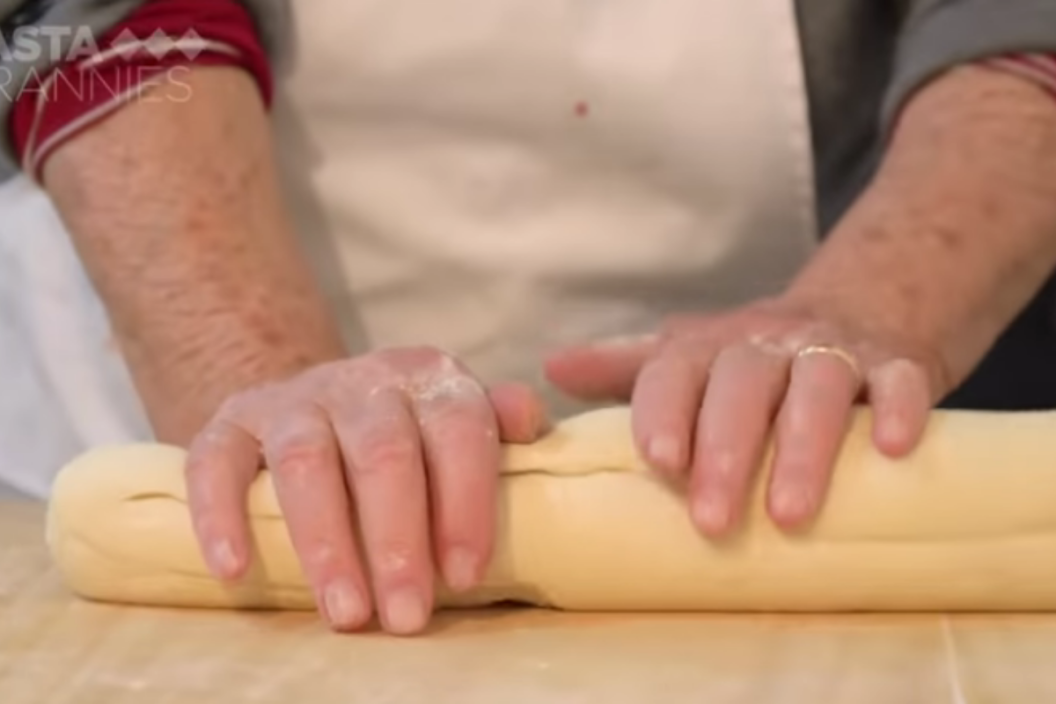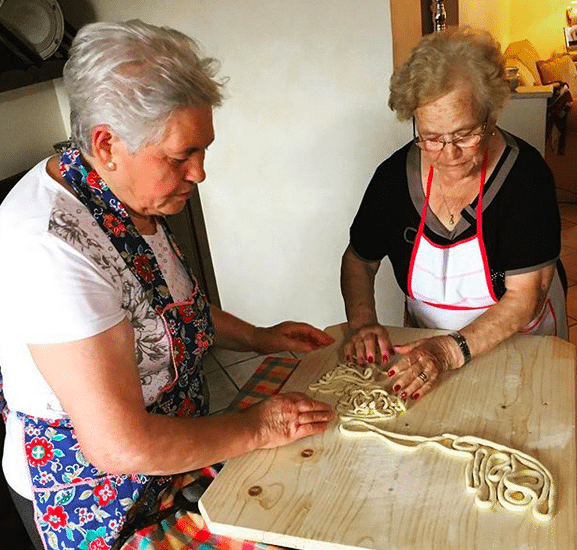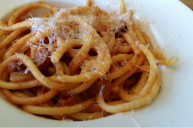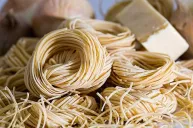Cooking with the matriarchs of your family is special. Getting two or more generations in the kitchen and making the recipes that are traditional to your region or have significance to you is like no other experience. If you've ever wanted to learn the traditional techniques of a region not your own, having someone else's grandmother teach you is the next best thing to having your own there.
Fortunately for all of us, there's an amazing YouTube channel that offers access to Italian nonne, or grandmothers, to teach viewers how to make traditional Italian food. The Pasta Grannies will suck you in, teach you how to make pasta from scratch, and convince you that all is right with the world (or at least that there's nothing that a little flour, water, and a little patience can't fix).
Food writer Vicky Bennison travels around Italy talking with some of the best home cooks out there — Italian women who make pasta by hand — and she's kind enough to share the videos of those encounters with us. She writes in the description of the Pasta Grannies YouTube channel: "Every Thursday, you'll watch Italian 'nonne' in their own homes making traditional pasta dishes - as well as other delicious Italian recipes like gnocchi, loaves of bread, soups that are typical of their region."
Bennison has talked to almost 200 women about pasta, from the every day to the rare and historic. She's also documented other traditional dishes like bean and pasta soup and Gesuiti, which is an Italian cheese, mushroom, and ham pancake bake, plus shared how to make perfect pesto and other delicious non-pasta food like scaldatelli, a specialty biscuit from Puglia.
The project started when Bennison was writing a book about Italian food and realized that cooking skills, like the ability to hand-make pasta dough, weren't being passed down to the younger generations. Not to mention that many cooks are too busy to spend time in the kitchen hand-making individual ingredients. She decided to celebrate these (mostly) women who still make fresh pasta by hand and share their knowledge with the world by filming them at work in their own homes.
And so, Pasta Grannies was born.
On her website, Bennison says, "Of course pasta making isn't going to die out, but it increasingly is a commercial activity - for chefs, pasta shops, and factories - rather than a domestic one." She's talked to nonnas in Rome, Venice, and Florence, but also in places like the Montese region, Bologna, and Sardinia.
It's so easy to get caught up in the videos; they're incredibly informative little bites (between two and four minutes, generally) and watch like comfort food. But the real treat is meeting the people. There's Giuseppa Porcu, the oldest pasta-making granny in the world; Grazia, Angela, and Mala, whose speed and precision at making tortellini is impressive; and Domenca, who makes cigar-shaped gnocchi called "raviole" which uses fresh cheese in the dough.
The Instagram @PastaGrannies account is also worth a look, but be prepared to click on pic after pic of hand-rolled trofie with pesto and green beans, a counter full of pansoti, and stunning views of the Italian countryside. (Also, some kitchens I'd be willing to move to Italy just for the chance to cook in.)
Bennison, who calls both London and Le Marche (central Italy) home, posts homemade pasta recipes on the Pasta Grannies website, along with more information on the Italian grandmothers she profiles, Italian chefs and restaurants, and Italian shops where she finds ingredients.
We're not saying that watching the Pasta Grannies will solve all your problems, but if you'd like to mix your cat videos and dog pictures with something just as comforting and fun, learning how to make handmade pasta with Italian nonnas is definitely what you need. Break out your olive oil, Parmigiano-Reggiano, rolling pin, and get ready to knead to your heart's content!
This article was originally published on August 8, 2018.





